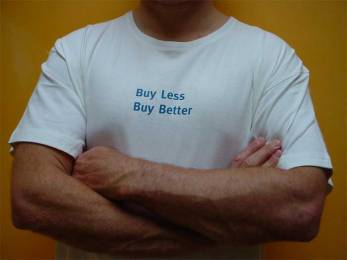
The home, household goods & services
Home automation
If you go back 40 or 50 years and look at visions of the future in movies and magazines one fairly consistent feature is the fully-automated home (usually the kitchen in particular). Thanks to the low-cost of high-tech, home automation is finally becoming within reach of 'the masses'. Home Depot in the US is apparently stocking up on home-automation products and companies like SmartLabs are adding about 30 new home-automation products a week to their online inventory. But what exactly is home-automation? The answer is primarily a mixture of smart products and dumb products that can be made to look smart by linking them to a smart control system. For example, previously an intruder would simply trigger an alarm system that was linked to the alarm company and ultimately the police. Nowadays, any unauthorised entry could switch on all internal and external lights, send a message to the home owner via his or her mobile phone and the intruder could even be photographed and the pictures sent to the police. SmartLabs predicts that by the year 2015 there could be around 20 billion home-automation products in people's homes ranging from security products to energy-conservation products that open and close windows according to pre-set instructions or weather conditions. Apart from security and energy efficiency, the other main benefits are convenience and customisation. For example, your home could recognise that you are on your way home, turn the lights on, run you a hot bath and switch on your favourite music. Remote control for your life - just don't lose the remote down the back of the sofa.
Ref: Business Week (US), 18 May 2006, 'Raising Your House's IQ', J. Pisani. www.businessweek.com
Search words: smart-homes, automation, security, remote control, homes, houses
Mirror mirror
Mirror mirror on the wall, which is the unfairest technology of them all? The latest prototype 'persuasive' mirror from Accenture's Technology labs could be a view of a future you. The normal-looking mirror contains a camera, flat screen monitor and image processing software that allows users to see what they will look like in the future.The system (its makers call it a 'persuasion tool') can be configured to take into account readings from other devices like the sofa (how often do you spend sitting on it?) and the refrigerator (how often is it opened?). It can even be linked to pedometers to monitor how far you walk each day or an ashtray (how often do you smoke?). Apparently we are all more likely to take on board information that is displayed visually, so this little piece of satanic technology is meant to motivate us to take good care of ourselves. No doubt future versions will also be wired up to the Department of Health who will send us SMS messages warning us that our actions are in violation of the terms and conditions of our medical insurance and care promises.
Ref: The Australian (Aus), 30 May 2006, 'Reflections of a future you', B. Gengler. www.theaustralian.com.au
Links: telecare, remote medicine
Search words: health, privacy, monitoring
Personal care products - for clothes
Given the explosion in personal grooming products for men and women, it's surprising that this hasn't happened sooner. A company in the US has launched a range of luxury cleaning and personal care products - for your wardrobe. Products include cashmere shampoo, swimwear care, ironing water, crease release and baby detergent. It's not immediately clear whether the latter is for washing your perfect children or for washing their designer clothes.
Ref: Springwise (Neth), 2 May 2006, 'Luxury fabric care'. www.springwise.com
Links: Black laundry detergent for washing black clothes.
Search words: Luxury, masstigue, fashion, clothing, detergents
Non-food organics
Organic food seems to have entered the mainstream, so where does organic go from here? We have already seen organic shoes, organic clothes, organic wine and organic water (seriously!) so perhaps the next frontier is personal care products. Anecdotal evidence suggests that sales of organic feminine-hygiene products are increasing although distribution is still very much limited to health shops. The logic here is that anything made using cotton is likely to contain high levels of chemicals due to the volume of pesticides used to grow cotton. Other contenders for the organic treatment must surely be socks, shirts, suits, toothpaste, toothbrushes, bed linen and carpets.
Ref: Sydney Morning Herald (Aus), 25-26 March 2006, 'Natural selection', J. Lunn. www.smh.com.au
Search words: organic, women
Luxury prisons?
Here's an interesting statistic: 6% of Americans currently live in gated communities (up from 5.5% in 2001) and the ratio of gated communities to trailer parks in the US is 1:1. Here's another scary fact: Rublyovo-Arkhangelskoye is a US$ 3 billion gated community development being built on the outskirts of Moscow. The 'complete urban environment' (their words) includes a fake medieval citadel where 'musicians entertain and street artists add colour to the surroundings' (their words again). There is even a (fake) fishing village, (fake) canal and (fake) cottages. Due for completion in 2009, the community will house 30,000 very wealthy people seeking security and solitude. That's about twice the size of Monaco - but whereas Monaco is a sunny place for shady people, Rublyovo-Arkhangelskoye is more of a holiday village for the thugocracy.
Ref: Newsweek (US), 9 May 2006, 'Behind closed doors', O. Matthews. www.newsweek.com
Search words: homes, gated communities, luxury, privacy
